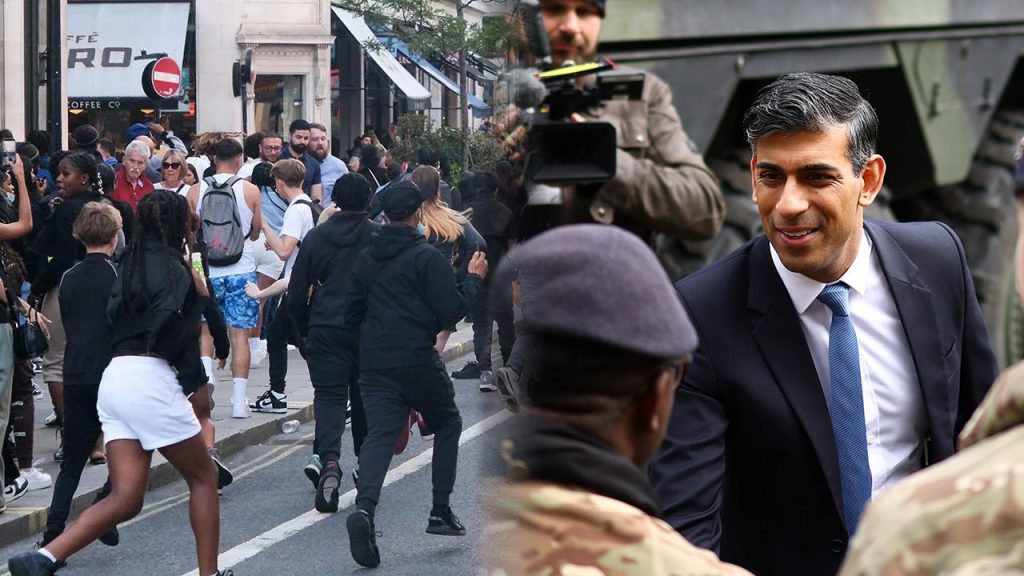British Prime Minister Rishi Sunak has announced plans to institute a national service requirement if the Conservative Party wins the general election on July 4. This proposal is believed to appeal to more right-wing voters who may have been considering voting for the Reform Party. Sunak’s announcement of the election caught his party off-guard, but he has since started laying out his vision for the next phase of his government. Polling currently puts the rival Labour Party ahead by around 20 points, and the Conservatives are looking to replace 77 MPs who have decided not to run for re-election.
The national service requirement proposed by Sunak would provide 18-year-olds with the choice to participate in either community volunteering one weekend every month for a year or a year-long military participation. This would include areas such as logistics, cybersecurity, procurement, civil response operations, or serving in the National Health Service, fire brigade, ambulance service, search and rescue, or critical local infrastructure. Sunak’s plan includes establishing a Royal Commission to design the program, with a pilot scheme set to accept applicants in September 2025 and a national rollout by 2029.
Support for a compulsory national service program in the UK is divided, with around 45% both supporting and opposing the idea. British Home Secretary James Cleverly has assured that there will be no criminal sanctions for individuals who do not complete military training as part of their service. Cleverly emphasized that the aim of the program is to address social fragmentation and encourage young people to engage with others from different backgrounds and viewpoints. The government estimates that the scheme would require around $3.2 billion a year by the end of the decade.
Critics of the national service scheme argue that it is a political move aimed at appealing to certain voter bases rather than addressing the real issues facing the nation. Nigel Farage, the honorary president of Reform U.K., suggested that the scheme was designed to draw votes away from the Reform Party. However, some critics, like former Boris Johnson adviser Thomas Corbett-Dillon, believe that the policy will not be successful in bringing people together or fostering patriotism. Labour leader Sir Keir Starmer has also criticized the idea as another example of the Conservative Party’s tendency to present new plans and strategies frequently.
In response to criticism of the national service proposal, Labour Party members have dismissed it as an unfunded commitment and a headline-grabbing gimmick. They argue that the money allocated for the program should instead be focused on addressing the challenges facing young people in terms of skills, qualifications, and job opportunities. Labour’s Shadow Work and Pensions Sec. Liz Kendall emphasized that elections should be about the country’s future rather than trying to recreate a better past. The debate surrounding the national service proposal highlights the ideological differences between the two major political parties in the UK and the challenges faced in addressing societal issues.













